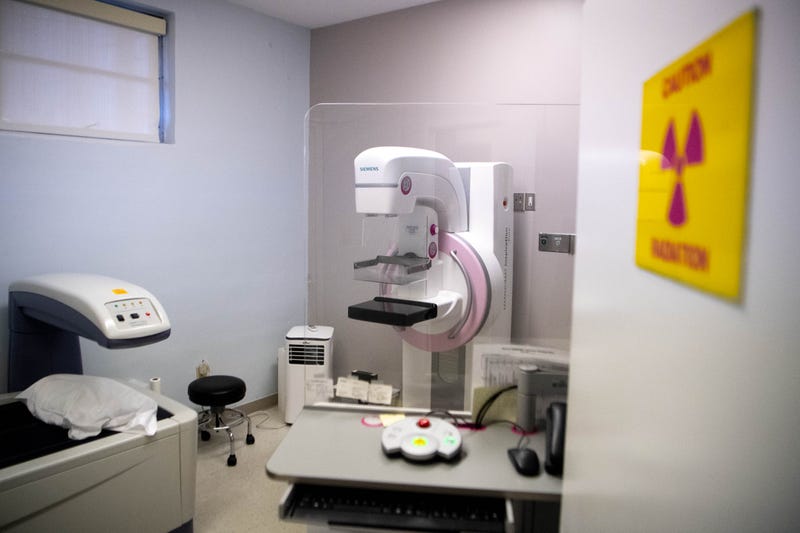
PHILADELPHIA (KYW Newsradio) — Breast cancer causes more than 40,000 deaths among women each year in the United States. At the same time, a recent CDC study found that the more health-related social needs a woman faces — such as food insecurity or a lack of access to reliable transportation — the less likely she is to get a mammogram.
Only 65% of women aged 50 to 74, with three or more health-related social needs, are up to date with their mammograms, compared to 83.2% of women with no adverse social determinants of health.
According to the study, life dissatisfaction, social isolation, lost or reduced hours of employment, food stamps, a lack of reliable transportation, and cost were all strongly associated with not having had a mammogram within the last two years.
“Women with health-related social needs were less likely to get these lifesaving mammograms to screen for breast cancer,” said Dr. Debra Houry, the CDC’s chief medical officer. “Breast cancer screening varies across the United States and is lowest among women without health insurance, those who have low incomes, and those who do not have a usual source of health care.”
The Vital Signs study is based on CDC research that analyzed data from the 2022 Behavioral Risk Factor Surveillance System. Understanding these health-related social needs could help improve screening efforts and reduce breast cancer deaths.
“Identifying these challenges and coordinating efforts between health care, social services, community organizations and public health to help address these needs could improve efforts to increase breast cancer screening and ultimately save these tragic losses to families,” Houry added.
Dr. Jacqueline Miller, director of the CDC’s National Breast and Cervical Cancer Early Detection Program, said health care providers can conduct a risk assessment for health-related social needs and refer patients to local social services to receive much-needed aid.
“The bottom line is women are more likely to get lifesaving mammograms when their social needs are met,” said Miller.
Want to get caught up on what's happening in SoCal every weekday afternoon? Click to follow The L.A. Local wherever you get podcasts.
While death rates from breast cancer have decreased over time, rates remain high in some groups, including Black women and women who have low incomes. The good news is Black women have been trending upward over the last few years: According to the report, Black women were the demographic most up-to-date on mammography use.
The U.S. Preventive Services Task Force currently recommends that women between the ages of 50 to 74 get a screening mammogram every two years, and women between the ages of 40 to 49 talk to their health care providers about when to start and how often to get a mammogram.
Follow KNX News 97.1 FM
Twitter | Facebook | Instagram | TikTok
